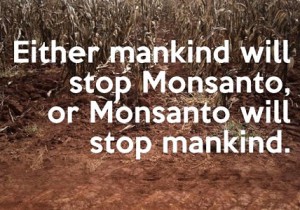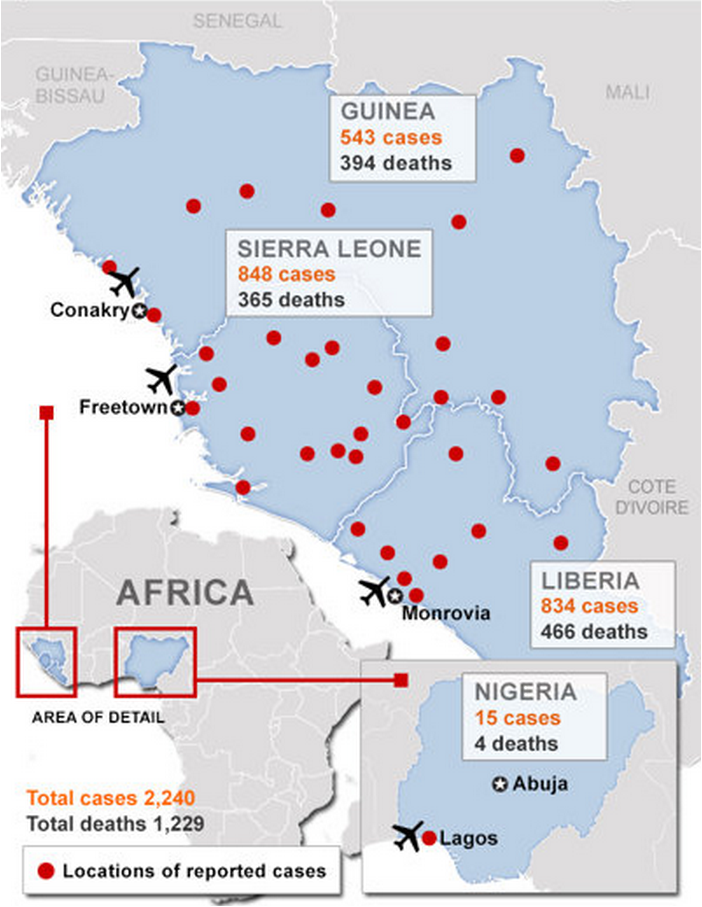Jul
18
2016
 I am passionate about science and critical thinking. I believe these to be the best tools humans have for understanding the universe and tackling the challenges that face us. This is why I am a science communicator and skeptical activist.
I am passionate about science and critical thinking. I believe these to be the best tools humans have for understanding the universe and tackling the challenges that face us. This is why I am a science communicator and skeptical activist.
Part of this passion is that blatant anti-science, credulity, and fraud are genuinely upsetting. Homeopathic potions are approved drugs, the medical profession is soft on pseudoscience as long at it is presented in flowery language, some people want to teach their religious beliefs as science in the public schools, pseudoscience in the courtroom leads directly to injustice, and there are organized and well-funded groups who are rabidly opposed to safe and effective technologies because of irrational fears.
Some of the forces behind irrationality and pseudoscience in our world are straight-up con artists. They are exploiting scientific illiteracy and lax regulations to knowingly defraud people. Many think they are just being slick marketers, and this is how business is done. Or, they are scientifically illiterate themselves and they actually think the pseudoscience they are selling is legitimate.
Many, however, mean well but are trapped inside their own ideology. They are equally passionate, perhaps even more so, about their issue. They feel they need to do everything they can to oppose what they see as an evil in the world (vaccines, fluoride, GMOs, mainstream medicine, evolution, etc.). This justifies in their minds some extreme tactics, such as harassing scientists, slandering their opponents, vandalizing scientific experiments, or lying when necessary. Some of them become extremely nasty people as a result.
This, of course, only serves to fuel the passion of the science advocates.
Continue Reading »
Jul
14
2016
Framing is a very interesting and intellectually critical concept. It is part of metacognition, the act of stepping back from the details of your beliefs and arguments to think about the nature of the thinking itself. Framing is meta-debate, where you think about the context of the debate itself, not just the details.
Framing can also be used, either consciously or inadvertently, to control a debate or discussion, to set up the parameters so that they favor one position.
A recent article in The Conversation discusses the framing of the GMO (genetically modified organism) debate. It’s an interesting article that definitely makes me think about how the GMO discussion should be framed, although I do not agree with the author, Sarah Hartley’s, take.
Continue Reading »
Apr
21
2016
 Eric Gimenez, writing for the Huffpo, recently wrote a typical anti-GMO piece, hitting many of the common themes. He focuses on the GMO banana with enhanced vitamin A, but his article reflects the poor logic, tortured arguments, and general anti-science of the anti-GMO crowd.
Eric Gimenez, writing for the Huffpo, recently wrote a typical anti-GMO piece, hitting many of the common themes. He focuses on the GMO banana with enhanced vitamin A, but his article reflects the poor logic, tortured arguments, and general anti-science of the anti-GMO crowd.
The GMO Banana
I wrote about the GMO banana controversy here. Bananas are a staple crop in parts of the world, including East Africa where it can represent up to 70% of calories consumed. Vitamin A deficiency is also common in this region. According to National Agricultural Research Organization (NARO) acting director Dr Andrew Kiggundu, 52% of children under five in Uganda suffer from Vitamin A deficiency, while iron deficiency accounts for 40% of deaths in this age group.
The idea is to engineer a banana cultivar native to the region so that it produces more beta carotene and iron. The cultivar is already adapted to the region, and the locals are already heavily growing and relying upon this staple crop.
Further, the GMO is being developed by the Ugandan government, NARO, the Bill & Melinda Gates Foundation and the U.S. Agency for International Development (USAID). This is primarily a humanitarian project created by the local government and farmers.
Continue Reading »
Dec
11
2015
 A Mexican pro-GMO group called Alianza Protransgénicos (the pro-transgenics alliance) was sent two package bombs in the mail. One went off on opening, injuring four people, including the vice-president of the group.
A Mexican pro-GMO group called Alianza Protransgénicos (the pro-transgenics alliance) was sent two package bombs in the mail. One went off on opening, injuring four people, including the vice-president of the group.
In completely unrelated news, a sister of one of the teachers who was killed in the Sandy Hook massacre, Carlee Soto, has been receiving threats on Instagram, which include publication of her home address.
I know I am not going out on a limb, here, stating the blazingly obvious – such violence is cowardly and abhorrent and should never be a substitute for a compelling argument. I do want to muse about the phenomenon, however.
The anti-GMO attack is particularly interesting, as it reveals the level of emotion and ideological fanaticism that can be present in such groups. Sending bombs to a pro-GMO group is similar to bombing abortion clinics. In the latter case, extreme religious beliefs are the motivating factor, and killing for one’s religion is nothing new. Killing over a debate about farming and food one might assume is quite different.
Continue Reading »
Aug
20
2015
 Vandana Shiva is one of the loudest voices speaking out against GM (genetic modification) technology and modern agriculture. She is an ideologue and a crusader, which unfortunately means that she feels free to play loose with the facts and the science as long as it serves her narrative. Michael Specter did an excellent article about Shiva a year ago for The New Yorker. This quote puts much of Shiva’s propaganda into perspective:
Vandana Shiva is one of the loudest voices speaking out against GM (genetic modification) technology and modern agriculture. She is an ideologue and a crusader, which unfortunately means that she feels free to play loose with the facts and the science as long as it serves her narrative. Michael Specter did an excellent article about Shiva a year ago for The New Yorker. This quote puts much of Shiva’s propaganda into perspective:
“There are two trends,” she told the crowd that had gathered in Piazza Santissima Annunziata, in Florence, for the seed fair. “One: a trend of diversity, democracy, freedom, joy, culture—people celebrating their lives.” She paused to let silence fill the square. “And the other: monocultures, deadness. Everyone depressed. Everyone on Prozac. More and more young people unemployed. We don’t want that world of death.”
To her, GMOs are part of a world of death, while opposing GMOs is all about joy and freedom. She is anti-corporate, anti-West, anti-globalization, and anti-technology. Her campaign is largely one of lies and misinformation. She would also apparently rather have people starve than eat GMOs.
As reason.com reports:
Ten thousand people were killed and 10 to 15 million left homeless when a cyclone slammed into India’s eastern coastal state of Orissa in October 1999. In the aftermath, CARE and the Catholic Relief Society distributed a high-nutrition mixture of corn and soy meal provided by the U.S. Agency for International Development to thousands of hungry storm victims. Oddly, this humanitarian act elicited cries of outrage.
Continue Reading »
Jan
19
2015
There is a major anti-golden rice smear and disinformation campaign underway, spearheaded by Greenpeace with other anti-GMO activists on board. They themselves consider golden rice to be a “Trojan horse” for GM technology in general, so they essentially admit that their motivation is to oppose GM technology, even if that means opposing a technology that can save the sight and lives of poor children.
Golden rice is a genetically modified rice variety with enhanced production of beta carotene, the pro-vitamin of Vitamin A. The name derives from its golden color, provided by the beta carotene, the same thing that makes carrots orange. Carrots, by the way, were originally white and were modified through breeding to produce beta carotene, which was a very successful biofortified campaign in Europe that effectively combated vitamin A deficiency.
In response to my post from last week on biofortified GM crops, one commenter did a large “cut and paste” into the comments (generally considered a comment etiquette no-no, but I let it through because the topic is so important) with essentially the full anti-golden rice propaganda. The commenter seemed to think this constituted a “convincing” argument. Let’s see.
*GR IS STILL NOT READY
While there have been long delays in the development of GR since it was “invented” in 2000 (1), this has not been due to the activities of anti-GMO activists, but to basic R&D problems.
This is confirmed in a statement by the International Rice Research Institute, the main body working on the GR project (2). According to the Institute, the time frame for developing a new product is about 13 years, and GR is “still under development and evaluation”. In September 2013 the IRRI expected GR to take another two years before it was ready.
While this point is essentially correct, it is not an argument against the adoption of golden rice. Golden rice (GR) development began in the 1980s. By 2000 the first GR variety was ready, but it produced too little beta carotene to be effective. GR2, using different genes, was ready by 2005 and contained 23 times as much beta carotene as GR 1. This is enough to effectively combat vitamin A deficiency in cultures that consume rice as their primary staple.
Continue Reading »
Aug
26
2014
I was recently interviewed for an article on Medical News Today by David McNamee regarding Why is scientific literacy among the general population important? The topic, of course, is very important to me, as I have spent a great deal of my time attempting to promote scientific literacy generally, with an emphasis on medical science since that is my specialty.
Carl Sagan articulated the basic issue well (of course) – to paraphrase, we live in a civilization increasingly dominated by science and technology, and with a populace less and less able to understand current science and technology. This is a recipe for disaster.
There are many examples that should be readily accessible to regular readers of this or other science blogs: are vaccines safe and effective, how much of our resources should we invest in reducing carbon emissions, are GMOs safe and are they a benefit or risk to the environment, should we put fluoride in public water supplies, how should alternative medical treatments be regulated and how should we invest further in clinical trials of their efficacy?
Continue Reading »
Aug
22
2014
 A common defense of implausible treatments is the question – “what’s the harm.” In other words, implausible therapies might help and can’t hurt, so there is no harm in trying. Is this a valid argument, however?
A common defense of implausible treatments is the question – “what’s the harm.” In other words, implausible therapies might help and can’t hurt, so there is no harm in trying. Is this a valid argument, however?
In trying to assess which side of a controversy has the better position I look toward logic and evidence. Evidence is critical, of course, but in fields outside my expertise I have to rely upon experts to interpret that evidence and put it into a broad and deep scientific context. In controversies, often the data itself is not the core issue, but which data to trust and how to interpret that data.
Therefore, when evaluating various controversial positions, it is very helpful to determine which side has the better arguments. If there is a dramatic asymmetry with one side relying heavily on logical fallacies, that is often very telling. Further, on any particular point you can follow the exchange through to completion and see which side ultimately has the better position.
For example, creationists argue that evolution violates the second law of thermodynamics which states that in any system entropy should increase. Scientists counter that the second law only applies to closed systems and the Earth is an open system, receiving energy from the sun. Creationists then counter that the universe is a closed system and so entropy should be increasing in the universe. Scientist counter further that entropy is increasing in the universe but this does not preclude local decreases in entropy where energy is available, such as the biosphere of the Earth. Creationists then respond by changing the subject. In other words – they have no response. They are wrong and have lost the argument.
Continue Reading »
Dec
30
2013
Sometimes scientific issues are fought by people in local communities who may not be (and probably are not) experts. This becomes a lesson in applied scientific skepticism, and highlights an important reason why we need a scientifically literate and critically thinking populace. Such issues include: fluoridation of public water supplies, allowing vaccine exemptions, teaching evolution vs creationism in science class, whether or not a public building really is a “sick building,” allowing students to attend class with a “facilitator” to help them communicate, and countless others.
Add to this list whether or not it is safe to have wi-fi in public schools. (This is part of a class of issues surrounding the health risks of various electronic technologies – electromagnetic fields, “dirty” electricity, high-voltage power lines, etc.) It’s possible to work up irrational fear over just about anything. We seem to be hard-wired for fear. It makes sense, in a way, to err on the side of caution (the so-called precautionary principle) but it is also easy to misapply this principle and cause more harm than good.
Recently a New Zealand school buckled to pressure from two fathers, Damon Wyman and David Bird, who have been campaigning to remove wi-fi from the local schools. Wyman recently lost a 10-year old son to brain cancer, and his subsequent search for a cause led him to misinformation on the internet about wi-fi.
Continue Reading »
May
29
2012
There was a lot of buzz over the long weekend within skeptical circles about a recent article by Mike Adams of Natural News infamy about the coming zombie apocalypse. In the article Adams, who is notorious among skeptics as a conspiracy theorist and promoter of every sort of dubious medical medical claim, reports the story of a Miami man who was shot by police because he was eating the face off another man and would not stop when instructed to do so.
Let me say right off that I get that Adams is being tongue-in-cheek through most of his article. He is using the current cultural fascination with zombies as a metaphor for the kind of medical zombies he thinks modern society is creating. I understand the use of satire and metaphor, and have done so myself on occasion. But I have also learned to be crystal clear about it (and even then you run the risk of being misinterpreted). I found Adam’s article, however, to blend points he was seriously trying to make with distortions and metaphors in a very unclear way. It doesn’t help that his serious points are themselves conspiracy mongering and fear mongering nonsense.
Here, I think, is the actual point Adams is trying to make:
Humans who subject themselves to fluoride, aspartame, psychiatric drugs, vaccines and street drugs end up lobotomizing their higher brains. Vaccines, for starters, cause extreme neurological damage, and some vaccines are actually made of aggressive viruses designed to “eat” targeted regions of the brain, resulting in a biological lobotomy.
See what I mean? Adams occupies that part of CAM world that is anti-government, conspiracy mongering, and anti-medical establishment. Those imperatives seem to trump science and reason at every turn. The anti-fluoride community is a very vocal minority who have had some success in scaring communities away from a safe and effective public health measure. They employ misinformation, distortion, and half-truths to fear-monger about fluoride.
Continue Reading »
 I am passionate about science and critical thinking. I believe these to be the best tools humans have for understanding the universe and tackling the challenges that face us. This is why I am a science communicator and skeptical activist.
I am passionate about science and critical thinking. I believe these to be the best tools humans have for understanding the universe and tackling the challenges that face us. This is why I am a science communicator and skeptical activist.
 Eric Gimenez, writing for the Huffpo, recently wrote a
Eric Gimenez, writing for the Huffpo, recently wrote a






